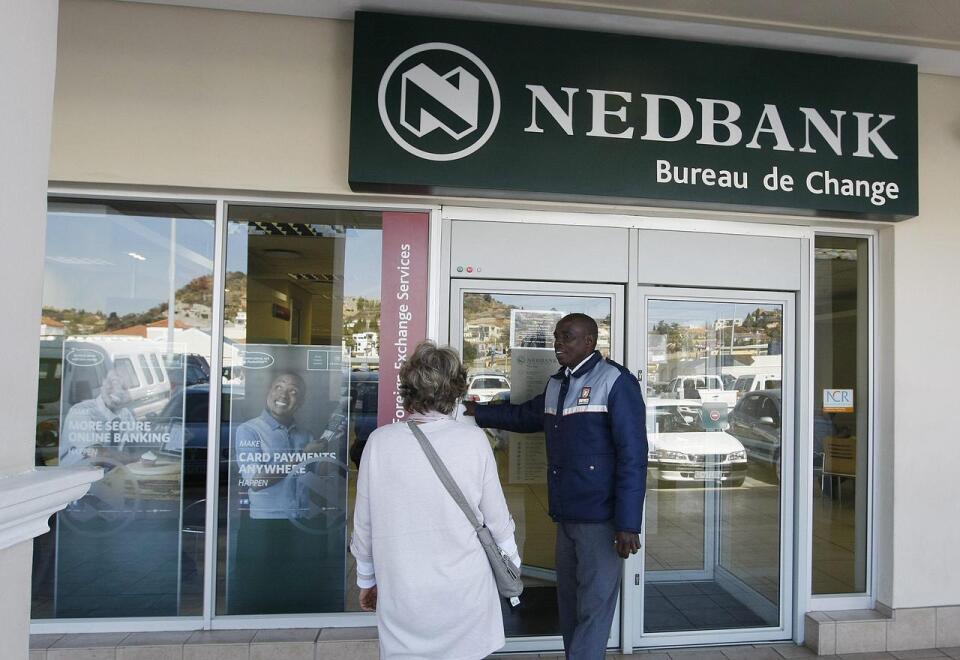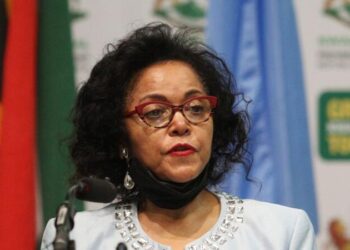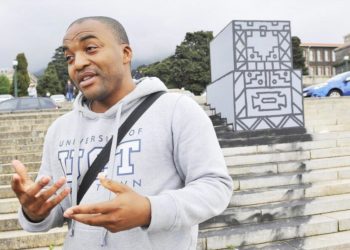Nedbank, one of South Africa’s largest banks, also implicated in the report for “disturbing” transactions, which saw the bank reach an arrangement with Regiments Capital, an advisor to the Airports Company South Africa (ACSA) at the time, currently provides banking services to Bain.
Nedbank, one of South Africa’s largest banks, also implicated in the report for “disturbing” transactions, which saw the bank reach an arrangement with Regiments Capital, an advisor to the Airports Company South Africa (Acsa) at the time, currently provides banking services to Bain.
CAPE TOWN -Not even the alleged involvement in state capture (Zondo Commission Report) and conspiring to weaken the South African Revenue Service (Sars) has deterred certain banks from their continued dealings with consultant pariah, Bain & Company.
Pressure had been mounting on the global firm to be held accountable for its alleged misdeeds, but aside from removing itself from Business Leadership South Africa (BLSA), nothing has been done to stop it from continuing to do business in the country.
This, as UK Member of Parliament and former anti-apartheid activist, Lord Peter Hain, last week wrote yet another letter, this time to Steve Barclay, Chancellor of the Duchy of Lancaster, and Minister for the Cabinet Office, for feedback on his call that Bain be suspended from any government contracts and prevented from bidding for further ones.
Hain said, until a global corporate like Bain ceases its complicity in state corruption in countries like South Africa, pays back all the considerable fees earned, and faces the consequences of legal proceedings recommended by the Zondo Commission, no reputable government should do business with it.
Nedbank, one of South Africa’s largest banks, also implicated in the report for “disturbing” transactions, which saw the bank reach an arrangement with Regiments Capital, an advisor to the Airports Company South Africa (Acsa) at the time, currently provides banking services to Bain.
This is in stark contrast with how Nedbank has dealt with the black-owned Sekunjalo Group of companies (Sekunjalo/The Group), choosing to terminate the companies’ bank accounts, on the pretext of “reputational risk”, among other reasons.
Sekunjalo and its companies have continuously maintained they have never been found guilty of any wrongdoing (after numerous investigations), but are the subject of a sustained campaign by media houses opposed to its transformation agenda.
The Group has since launched an Equality Court case to challenge the decision to terminate all their accounts.
In his report, Judge Raymond Zondo, who chaired the Commission of Inquiry into State Capture, said: “Nedbank’s arrangement with Regiments Capital was, accordingly, one in terms of which Regiments Capital, which was Acsa’s agent, was incentivised to act contrary to its principal’s interests by increasing the margin payable by Acsa to Nedbank and, thus, increasing its 50% share of this margin.
“There is no evidence that Nedbank ever sought proof from Acsa that Acsa had authorised the arrangement in terms of which Nedbank, as Acsa’s counter-party would pay the ‘fees’ of Acsa’s agent, Regiments Capital, up front and recover these ‘fees’ from Acsa over the life of the transaction with Acsa. Still less, is their evidence that Nedbank informed Acsa that Regiments Capital, as Acsa’s agent, was being incentivised to increase the margin payable by Acsa to Nedbank.”
Whistle-blower and author of the book, Deep Collusion: Bain and the capture of South Africa, Athol Williams, said there were several reasons that could explain the company’s ability to continue operating in the local market as if nothing had happened.
Williams had worked for the company for years and knew exactly how they operated.
“Because companies like Sasol still do business with Bain, it legitimises them because they can say: ’Well, Sasol, this big company, still does business with us.’ No one is calling business out on lies and duplicity.
“All our CEOs should have been people of integrity, including the Johannesburg Stock Exchange, and come out and condemned Bain or companies employing Bain.”
Williams added that Bain had pointed the finger for wrongdoing at one former managing director but, in fact, there were 14 executives in the country who had worked on the Sars project.
“Firstly, there was not one bad guy, they had 14 partners in the country and within weeks they were ushered out of the country, 13 of them are still with Bain. All the people up the chain knew what was happening in South Africa.”
He added that while Bain had paid back the fees it earned from Sars, it did not pay back South Africa for the “damage” they had caused.
“Sars is still fixing the damage. Bain did not only cause damage at Sars. The Zondo Commission report found all public sector contracts should be re-examined as an acknowledgement, that is just one example of where Bain caused damage. There were procurement irregularities at Telkom, the PIC…”
Government was often “complicit” in the wrongdoings, which would further explain why no action had been taken, he said.
“(Former president Jacob) Zuma did not capture our state, the private sector captured our state. The business world presents itself as clean, but there were mentions of Nedbank, Standard Bank – companies people were shocked to think of as corrupt.
“The second problem is that our country is run by business, power dominates how things are done, [a] business friendship with Bain, Mckinsey, Nedbank, no wonder no one speaks up because they represent the largest companies in the country. It is a mafia network of organised crime, and everyone is holding everyone’s hand.
“Close relationships is the story of Bain. Withdrawing from Business Leadership is nonsense. They needed to be expelled, but that would hurt their business, withdrawing tells clients we chose to leave.”
Admitting to mistakes, Bain SA still insist they did no wrong, saying: “As we have consistently stated before, the global law firm, Baker McKenzie, carried out a thorough investigation on our behalf, which was not limited in any manner. Their investigation was extensive and included a review of more than 250 000 documents, as well as 83 interviews conducted with 58 individuals, including former employees. The investigation uncovered no evidence that we intentionally harmed Sars nor that we participated in state capture. This was made public in a statement issued on 17 December 2018.
“We have since put in place measures to ensure that we don’t repeat our mistakes and continue to work to regain the trust of South Africa. We appointed new senior leadership for our South African business and established an oversight board for our broader African business. We also set up a global risk management team to oversee all public sector work. We have offered full co-operation to enforcement authorities and will continue to do so. In November 2018, we also repaid all fees plus interest that we received for our engagement with Sars.”
Asked why it had not acted against Bain, a Nedbank spokesperson said: “Nedbank is bound by client confidentiality and is unable to discuss clients with third parties. Nedbank has robust policies, processes and governance which guide the bank in assessing the risks (including reputational risk) of its client relationships. Decisions taken in relation to such relationships are taken independently by Nedbank with reference to its own assessment of all the relevant information and due diligence processes and the particular facts and merits of each case. Nedbank’s reputational risk management processes are continuously reviewed and updated to ensure that they are legally sound, non-discriminatory and adopt a consistent approach.”
Cape Times


















